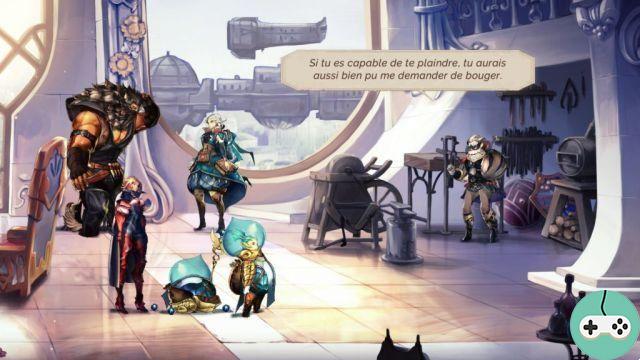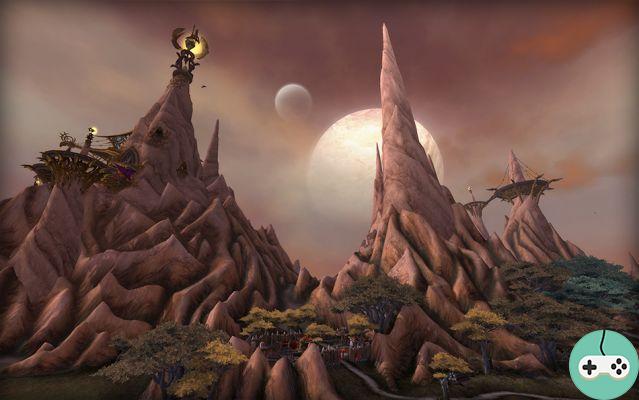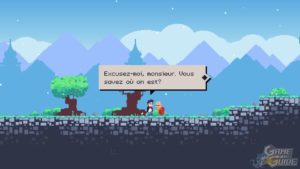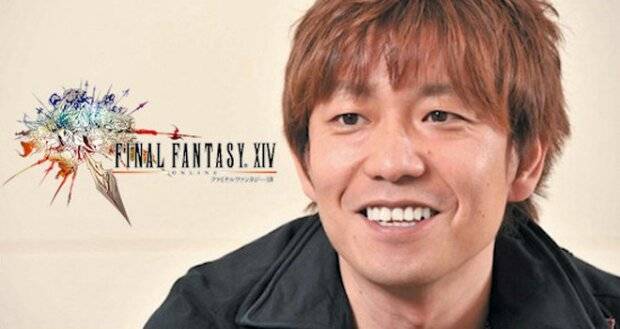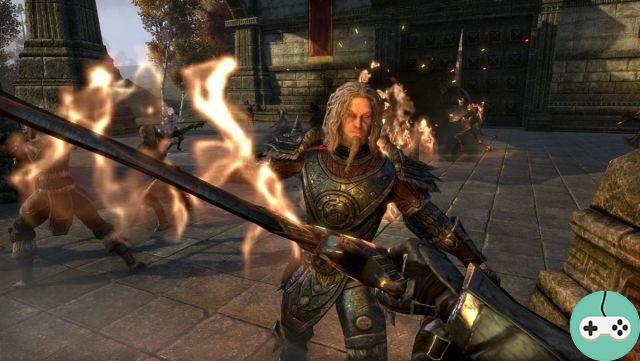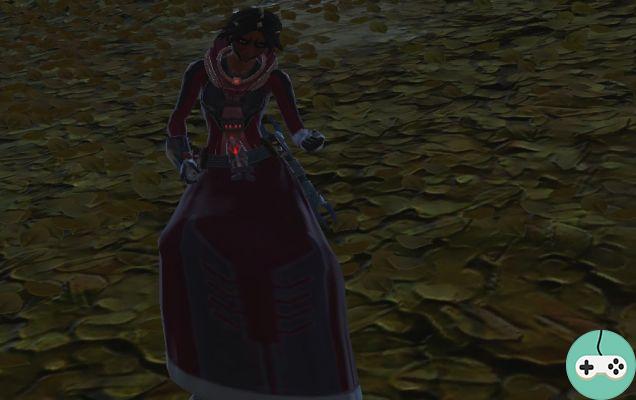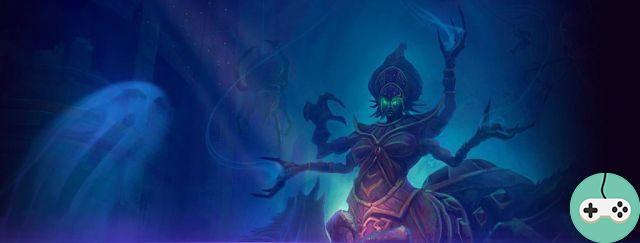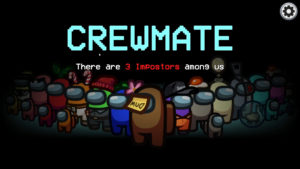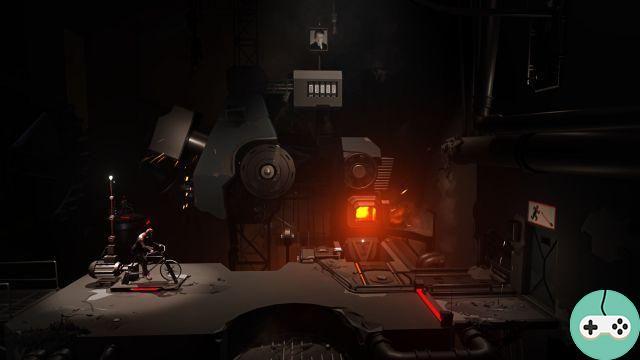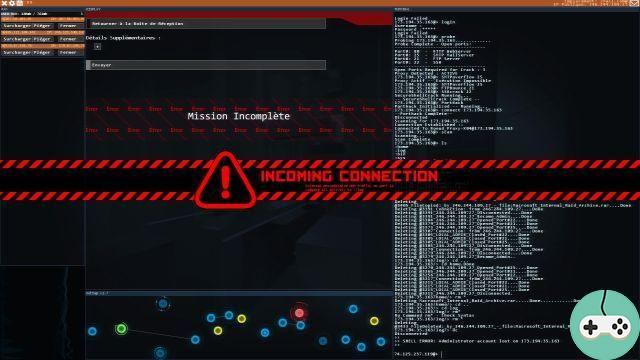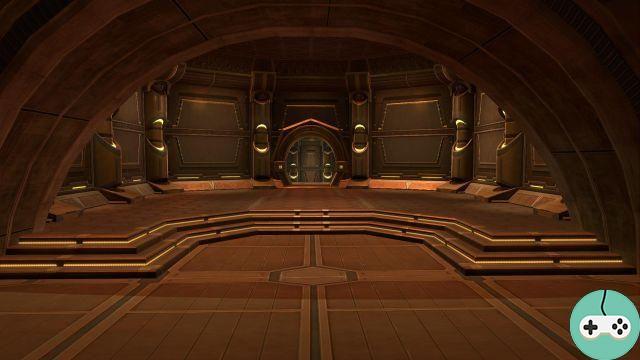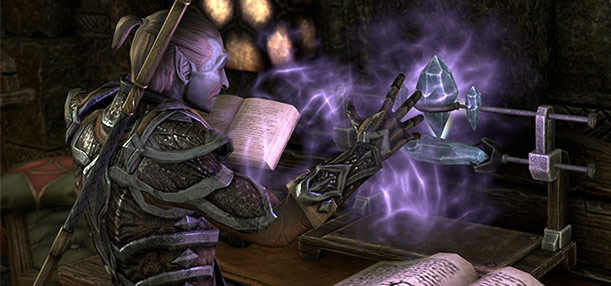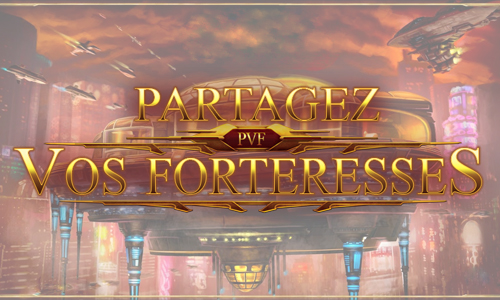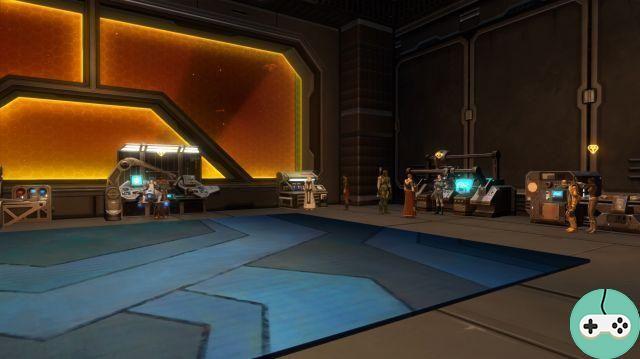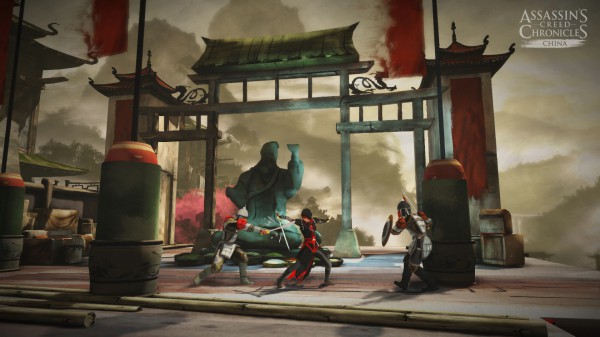During gamescom, clamoune had the opportunity to discover Pentiment, a narrative game inspired by medieval manuscripts, which intrigued me to the highest degree (you can find his article here). So when Microsoft/Xbox offered me a code, I accepted without hesitation!
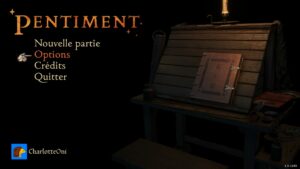
The introductory scene immediately puts you in the very special atmosphere of the title, with settings inspired by medieval illuminations that seem like something out of a book. Andreas, the character played, has a strange dream that leads him to chat with Brother Jean and a strange madman who doesn't have his tongue in his pocket. This first meeting is an opportunity to present the artistic work that Andreas does for Kiersau Abbey. Although invited among the monks, he is in conflict with the abbot. This is also the time to make a first choice, when you are asked to select the reason for the dispute between our hero and the clergyman. For my part, I decided that Andreas was having trouble meeting his deadlines.

April 1518. Tassing in Bavaria (Holy Roman Empire). Andreas wakes up. A few discussions with the inhabitants of the small Bavarian town allow us to define its past. His region of origin (Basel, Flanders or Italy). What he likes to do (Hedonist, Artisan, Bookworm, Rascal or Businessman). His field of study (Theology, Imperial Law or Medicine). His two favorite subjects (Latinist, Logician, Orator, Occultist or Heaven and Earth). This knowledge will unlock unique dialogue possibilities for the rest of the adventure: a great opportunity for replayability. My Andreas lived in Basel. A real bookworm, he likes to spend his free time finding as many books as possible. At the University of Erfurt he studied theology, which gave him insight into Catholic theology, biblical knowledge, canon law, heresies and similar subjects. His gifts as a speaker allow him to teach and persuade. He likes to speak in public. His interest in the life sciences led him to excel in astronomy. He learned a lot about constellations, celestial bodies and their movements. He is also fascinated by new books written about plants and animals, and enjoys spending time in nature doing his own research.

The story unfolds following the rhythm of the passing days. In the morning, often dedicated to work. Noon, meal time. Then in the afternoon, where Andreas returns to work. Before supper. As night falls, it's time to go to bed. Mini-games brighten up the story. To break the rhythm of the narrative game and reinforce the immersion while giving a better insight into the daily life of the characters.


The first day is quite guided, with few choices of activity. Andreas wants to make the most of his work and he already has commitments for his meals. Very quickly, a surprise guest disrupts the monastic routine. Baron Rothvogel, a wealthy and respected patron of the abbey, comes to check on the progress of one of his orders, a manuscript that Brother Piero, an old man who has grown slow with age, is responsible for copying. As if this delay were not enough, the baron finds his style outdated and he complains. On the contrary, he has nothing but praise for our character. Especially if, like me, you don't hesitate to argue with this nobleman who turns out to have ideas that many considered at the time to be subversive. Unfortunately, the debates between Andreas and Rothvogel are cut short when the baron is found dead at the feet of brother Piero. The monk is quickly accused of the crime, but Andreas is convinced of the innocence of the copyist, and he intends to prove it!


Regularly, choices have to be made. No stress. No timer forces you to rush to click. But it is not possible to cut it. Doing nothing or being silent may be considered decision making in certain situations. When a choice counts for the continuation of the story, the game marks it with "it will not be forgotten". Just like when a consequence ensues, with a table that clearly indicates bonuses and penalties. An excellent point for replayability. Just take a screenshot to know how to influence specific events.
The game shines with a millimeter-precise design. Every shot. Every music. Every sound. Every decor. Everything has been thought out to echo the great artists of the time. A living world, where art is inspired by the great illuminated manuscripts and the first printed books. The taste for a job well done is felt at every moment. Even in the interface, which remains in tone, through the newspaper and the different cards. A passion project from the Obsidian studio, carried by a small team of thirteen developers led by an enlightened director, Josh Sawyer. Taking us to a historically faithful era, with characters that come out of the writers' imagination.


On the other hand, this game is not to put in all hands. To appreciate it, you have to love letters. The beautiful words. Uncommon turns of phrase. Beyond the style, the dialogues take on subjects that risk leaving marble many players, little versed in the literary arts. The topics covered are varied. Theology, of course. Psychology. Occultism. But also the place of art, or women's or labor rights and even the class system. Many eminent authors of this period and their works are quoted. Of course, everything has been done to simplify access, in particular with the addition of interactive links on certain terms and proper names, which allow you to open an encyclopedic file in the glossary. Still, it's worth reading. If you don't like it, move on. No actor will declaim the dialogues to you. The tone and intonations are given by the typeface used. I quote here the press kit, which summarizes better than me this work done on the way the lines appear in the game:
- The font style changes depending on Andreas' perception of the character's social status and upbringing.
- The sacred words are written last, in red, as tradition dictated due to the changing color of the ink.
- The typeface has stroke masks that allow each letter to be drawn as if it were handwritten and the character is writing to you.
- To mimic the feel of physical ink, each stroke is first dark and shiny, then seeps into the parchment and dries to become less opaque.
- As fonts reflect handwriting, characters can make mistakes and typos are rewritten in real time.
- Printing becomes more dominant in the early modern period and is reflected in the typeface of the printing press, where some characters are engraved in one stroke.

As I told you: precision lies in every detail. If you don't like these sometimes convoluted fonts, the "Easy Read" option allows you to disable certain fonts and other writing effects. Personally, I find that unfortunate. But I welcome the initiative. Other options improve readability: font size, high contrast, voice synthesis.
With a multitude of choices to be made, the consequences of which reverberate over several generations, the story is written over twenty-five years, in other words, Pentiment has never ceased to surprise its players. I adore. But I am well aware that many will remain hermetic to this very verbose universe. If the words don't scare you, go for it! You will discover a historical investigation rich in twists! The game is out tomorrow on Game Pass (Xbox and PC), Xbox consoles (Xbox Series X|S and Xbox One), Windows PC, Steam and Xbox Cloud Gaming (Beta).
https://www.xbox.com/fr-FR/games/pentiment




